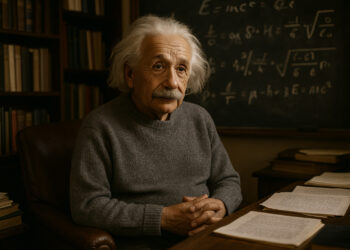Marie Curie was not just a scientist—she was a pioneer who redefined what it meant to explore the unknown. As the first woman to win a Nobel Prize and the only person to win in two different sciences, her discoveries in radioactivity changed the course of modern physics and medicine. Her brilliance, perseverance, and humility made her one of the most inspiring figures in scientific history.
A Trailblazer in a Man’s World
Born in Poland in 1867, Maria Skłodowska Curie faced barriers that would have stopped most people. Denied access to higher education in her homeland, she moved to Paris to study at the Sorbonne, where she immersed herself in physics and mathematics. Despite financial hardship and gender discrimination, Curie’s passion for discovery never wavered. She broke through academic walls that had long excluded women, proving that genius knows no gender.
The Discovery That Changed Science
Working alongside her husband, Pierre Curie, she began studying uranium’s mysterious energy emissions. Through painstaking research, they discovered two new elements—polonium and radium—and coined the term radioactivity. Their work revolutionized our understanding of atomic structure and laid the foundation for advances in medicine, energy, and physics. The couple’s findings earned them the 1903 Nobel Prize in Physics, shared with Henri Becquerel.
Beyond the Laboratory
After Pierre’s tragic death in 1906, Marie continued her research, becoming the first woman professor at the University of Paris. Her second Nobel Prize—in Chemistry (1911)—recognized her work in isolating pure radium. During World War I, she developed mobile X-ray units, saving countless lives by bringing medical imaging to battlefields. Despite her fame, Curie remained humble, refusing to patent her discoveries so humanity could benefit freely from her work.
The Cost of Brilliance
Curie’s dedication came at a price. Prolonged exposure to radiation—whose dangers were not yet understood—led to her death in 1934. Yet even in her final years, she continued to work tirelessly, driven by an unyielding belief in the power of science to serve humanity.
Conclusion
Marie Curie’s legacy glows brighter than any element she discovered. She illuminated paths for women in science, pushed the boundaries of knowledge, and proved that brilliance, when guided by curiosity and courage, can change the world forever.












